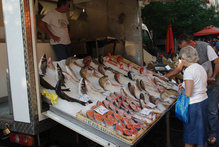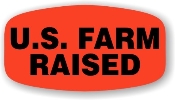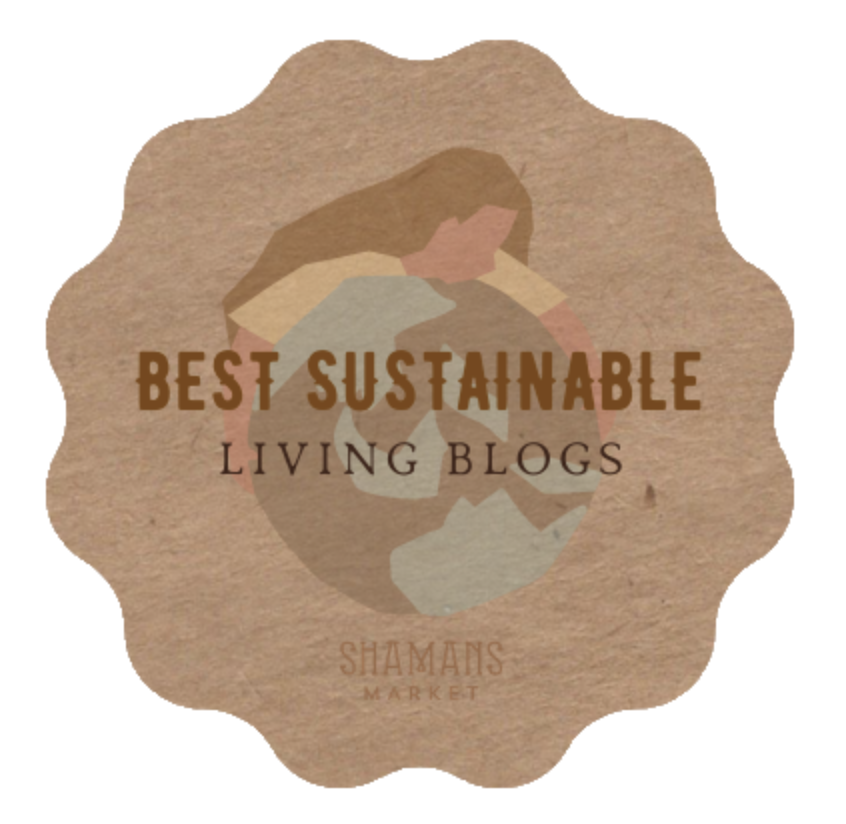Farm Raised
 Farm Raised or Wild Caught
Farm Raised or Wild Caught Farm-raised fish are from irrigation ditches, ponds, pens, netted areas and tanks. These fish do not live in a natural habitat and the majority are not caught by fishing boats. (A small percentage of Farm-raised fish from fish hatcheries are released into the ocean for commercial fisherman to catch.)
Due to the public's increase demand for seafood, Farm-raised fish was first believed to be the answer. However, rules for this label are mostly non-existent. Pens can be over-crowded and the prevailing question is how often are the pens cleaned out or how often is the fish feces cleaned out? Yes, a netted area opened to the ocean will offer better circulation of water and flush the area clean, but how can the consumer know if the fish they are buying had those living features? The Farm-raised label doesn't tell these details.
Consumers might know that Farm-raised fish are less expensive to buy and less of an environmental concern due to fishing techniques that use drift nets, and may cause damage to the ocean's environment. Fishing lines and cage traps are the preferred methods and do the least damage. However, there are no laws making these better fishing techniques mandatory. Also to consider is the possibility of netted areas with Farm-raised fish causing a discharge plume with overbearing amounts of fish feces into the ocean.
When shopping for fish if we wish to live with the highest outlook for sustainability, we should look for another label: The Marine Stewardship Council (MSC) label, which will be covered in this blog within a few weeks.
When eating out in a restaurant, there are several questions one should ask if ordering fish: How was the fish caught? From what waters did the fish come from? (Location such as: the North Sea, off Cape Cod, New York's Hudson River or Prince William's Sound in Alaska?) If Farm-raised fish is on the menu, ask how was the fish raised? In a tank, pond or netted area? What was the diet and were the facilities sanitized?

So on one hand we have the over-fishing of the ocean and on the other hand we are without guidelines and detailed labels that state all the facts. We also have corrupt fish retailers marking Farm-raised fish as Wild Caught. Oceana, who is a nonprofit ocean protection group, stated that 1/3 of all fish purchased between 2010 and 2012 were mislabeled. Consumer Reports in 2006 stated that almost 50% of Wild-caught salmon bought in supermarkets were actually Farm-raised.
No matter what you decide, like it or not, we as consumers must strive to be informed.
Environmental Scientist
International Sustainability and Energy Consultant
Contribute your comments!






















